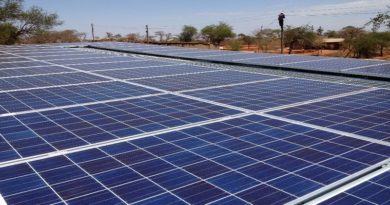Climate finance: GCF, partner assess outcomes of COP27
As part of the 7th Annual Scaling Up Community of Practice Workshop, the Green Climate Fund (GCF) and the Brookings Institution organized a Climate Change Working Group session on 3 February 2023 to assess the outcomes of COP27, particularly the role of climate finance and how to scale its impact for climate action.
‘We have a lot of new and nice and interesting ideas but [they are] not scalable enough to meet the target that we have to get to,’ said former Executive Secretary of the United Nations Economic Commission for Africa Vera Songwe as she opened the workshop by sharing the principal messages of the Report of the Independent High-Level Expert Group on Climate Finance.
‘The target that we have to get to, we have to get to it quickly. The 1.5°C limit is around the corner. This is a battle. It is a race against time, but it is a race that we can win. To win it we need to inject a bit more of the sense of speed into the conversation of climate finance,’ she emphasised.
“Today the key challenge to scale up climate action is not to reduce the cost of technologies. It is to reduce the cost of financing of these technologies,” said GCF Executive Director Yannick Glemarec.
Glemarec pointed out that climate investments to this day remains skewed towards industrial countries who secure about 80 per cent of yearly global climate finance, since higher credit ratings and a more threatening investment risk-environment in developing countries often pose too steep a barrier for private climate finance.
President and CEO of the Bezos Earth Fund Andrew Steer offered his perspective on the challenges and opportunities in scaling climate finance for impact. He estimated that about USD 3 trillion is needed worldwide annually to stay below the 1.5°C limit, and that most of the money is available, but needs to be leveraged for impact at scale instead of one-off projects. Steer argued that climate finance of the future must flow towards ‘positive tipping points, where change becomes irresistible and unstoppable such as the experience has been with wind energy in Texas’.
In concluding the session, Co-Director at the Center for Global Development Cooperation in Europe Ian Mitchell underscored the findings of his most recent report about how public climate finance could employ some of the hard-earned lessons drawn from developmental aid to ensure a more effective and impactful climate effort. ‘We are seeing a trend over time where the most indebted countries receive about 30 per cent of their climate finance as loans. We should be thinking about that,’ Mitchell said.
Moderated by Amar Bhattacharya, Senior Fellow at the Brookings Institution, and chaired by George Zedginidze, GCF Head of Knowledge and Change Management, the session was attended by over 90 participants.




